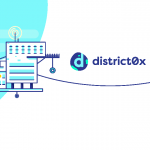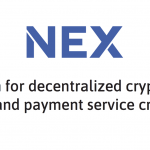Let’s face it, Bitcoin is currently dominating the market, but altcoins cannot be just brushed off, they are maturing as well and are ready to provide a keen and tough competition. There is one coin, however, which, as claimed by its founders, cannot even be called an “altcoin.” Meet BitcoinPlus.
Originally, BitcoinPlus was purely a Proof-of-Stake coin, however, a bunch of recent updates included the ability to secure the network using Proof-of-Work, therefore Bitcoin Plus is what is now known as a hybrid POS/POW. This means that if the network ever faces a serious issue, things can be moved along manually by switching on Proof-of-Work for a short period.
Bitcoin Plus has one mln coins to respond to 21 mln Bitcoins, it is characterized by a much faster block processing time and can handle eight times more transactions than Bitcoin. The best feature of Bitcoin Plus is the 20 percent annual staking until all one mln coins have been staked.
FEATURES.
- Hybrid PoS/PoW.
BitcoinPlus - XBC is a hybrid Proof-of-Work (PoW) and Proof-of-Stake (PoS) coin.
What is Proof-of-Work ?
Proof-of-Work happens through miners trying to solve exceptionally difficult math problems. Finding a solution is basically a guessing game, but checking if a solution is correct is easy. Miners aren’t able to cheat the system because it takes real-world resources to work out these solutions. As more and more miners try and solve the math problems, the difficulty of the math problems automatically increases. After a short while it starts to take a huge amount of computers and electricity to simply mine the coin and keep the network going. This leads miners to have high energy costs and this is clearly awful for the environment.
What is Proof-of-Stake ?
PoS happens by a miner putting up a stake, or locking up an amount of their coins, to verify a block of transactions. The cryptographic calculations in PoS are much simpler for computers to solve: you only need to prove you own a certain percentage of all coins available in a given currency. For example, if you somehow owned 5% of all BitcoinPlus- XBC, you’d be able to mine 5% of all transactions across BitcoinPlus - XBC.
How Do you Stake Coins PoS in BitcoinPlus - XBC ?
- Download a Windows, Mac or Linux Wallet from the website.
- Fully sync your Wallet to the XBC Network by running your wallet and downloading the blockchain. (Automatic as soon as wallet is opened).
- Buy some XBC from the Exchanges.
- Withdraw XBC from the Exchanges to your Wallet.
- Leave the coins in the wallet for 12 Hours. After 12 Hours the coins become eligible for Staking. The wallet must be Unencrypted for it to allow Staking. (Found under Settings in the main Tool Bar. At Default XBC Wallet is Unencrypted).
What is meant by the Terms Weight in PoS ?
The Weight of the Network is a figure given to the All the coins that are actively Staking on the entire XBC Network. The Coins in your Wallet that are available for Staking also has a Weight. If the Weight of the Network is 8000 and the Weight of your Coins is 2000 then you have a good chance of Minting some new coins. However if the Weight of your Coins is just 1 then the chance of you Minting some new coins are remote. The Weight of the Coin is simply based on Coin Age. As a coin gets older as does the weight and your chance of Minting coins increases.
Does my Wallet have to be open 24/7 to Receive my Stakes ?
It is true that to mine any coins your wallet must be open. If your wallet is closed it cannot be part of the lottery. However the PoS rewards do NOT take into account the length of time a wallet is open. If you open your wallet for a few hours once a month you will receive roughly the same amount of coins as someone who is staking 24/7. The 24/7 Wallet will receive many more smaller amounts and the wallet open infrequently will receive less but larger amounts. The total will roughly be the same. The issue with doing this is that when a wallet is not open for a long period of time, then is opened again, the amount of potential Staking weight created by that wallet will be very high while the rewards catch up to meet the 365 day inflation calculation. The ideal situation is to leave the wallet open 24/7 so it provides a steady amount of PoS mining power on the network and acts as a node for gaining consensus.
Are my newly staked coins automically put back into the pot again for Staking ?
Any new coins and the coins used to mint them are NOT eligible for Staking again until the coins have received 110 confirmations.
How Do I mine BitcoinPlus - XBC using PoW ?
BitcoinPlus PoW reward is set at Zero. You can mine XBC with your GPU if you wish but would be wasting your electricity. The option to use PoW in XBC is simply there in case the network stalls using PoS For instance if there comes a time there are no coins available for Staking then anybody can mine the coin via PoW to move the network along until such a time that coins become available again for PoS PoW is simply a backup.
If I have 500 BitcoinPlus - XBC, How many Coins can I expect to Make per Year ?
The inflation rate for XBC is set at 20% Annually which is 1 Year. The Reward is simply calculated as 20% of 500. Over the course of the year you can expect to create (500 / 100) * 20 = 100. So if you start the year with 500 XBC at the end of 1 year you can expect to have around 600 XBC.
2. Scalability.
Scalability has always been an issue with Bitcoin. The most relevant issue is the block size which is currently limited at 1MB or 1000000 Bytes. The chart below details the average 1 Week Transaction Size since May 2010. The average BTC Transaction size is around 495 Bytes.
So how many BTC transactions will fill a Bitcoin Block ?
This is simply -
Maximum Block Size / Average Transaction Size = Average Transactions Per Block.
1000000 Bytes / 495 Bytes = 2020 Transactions.
A new Bitcoin Block should be found by miners every 10 minutes. There are 600 seconds in 10 minutes. To calculate Transactions per Second this is simply -
Number of Transactions Per Block / Block Time in Seconds.
2020 Transactions / 600 Seconds = 3.37 Transactions Per Second.
Now that BTC has reached a good level of adoption the block size limit is frequently reached. Transactions that are not processed are rolled over into the next block. Priority is given to Transactions that include a higher transaction fee. It is not a perfect system by any means which is why there was an ongoing debate about the scalability of Bitcoin before another version was created, Bitcoin Cash.
So how does BitcoinPlus - XBC handle scalability?
For starters BitcoinPlus has a much shorter average block time. 60 seconds compared to Bitcoins 600 seconds. So straight away BitcoinPlus can already handle 10 times as many transactions every 10 minutes. The Block size limit in BitcoinPlus is also larger at 1.5MB or 1500000 Bytes. The average Transaction size of BitcoinPlus is very similar to Bitcoin.
Using the Bitcoin average of 495 bytes we can work out how many transactions BitcoinPlus can handle every block.
Maximum Block Size / Average Transaction Size = Average Transactions Per Block.
1500000 Bytes / 495 Bytes = 3030 Transactions.
To calculate how many transactions per second this is simply-
Number of Transactions Per Block / Block Time in Seconds.
3030 Transactions / 60 Seconds = 50.5 Transactions Per Second.
You can see therefore It is going to be a very long time before BitcoinPlus has to worry about any scalability issues.
BITCOIN PLUS (XBC) OVERVIEW.
Current coin Value: $81.88 (1.37%).
Market Cap: $8,199,227.
24hr volume: $172,579.
Circulating Supply: 100,143 XBC .
(As of 1/9/2017).
POW Algorithm : X13.
Block reward: Zero - Note Proof of Work is used only to secure the network where necessary.
POS Stake Inflation : 20% Annually. (Calculated per 365 days).
Minimum Stake Age : 12 hours (Coins must be in the wallet for 12 hours before being eligible for Staking).
Coin Reward Maturity: 110 Blocks (Once newly created coins have reached 110 block confirmations they will become spendable).
Block Time: 60 Seconds.
Maximum Block Size: 1.5MB or 1500000 Bytes.
Max Supply : 1,000,000 (1 Million) Coins (After which no NEW coins are rewarded. Currently rewards are made up of NEW coins and transaction fees. Once 1,000,000 coins is reached all POS rewards will come from transaction fees only).
Exchanges.
BitcoinPlus can be traded on the World’s most popular Cryptocurrency Exchange - Poloniex https://poloniex.com/exchange#btc_xbc . Numerous secondary exchanges available for the avid trader:
- Cryptopia https://www.cryptopia.co.nz/Register?referrer=xbcplus ,
- Coinexchange https://www.coinexchange.io/market/XBC/BTC?r=0905c049 ,
- NovaExchange https://novaexchange.com/market/BTC_XBC/
- Cryptodao https://cryptodao.com/site/index/XBC/BTC .
Wallets.
XBC is an alternative Cryptocurrency with a modern and efficient working wallet. Designed for the normal guy in the street. Not your Tech Nerd !
By default when you start up your XBC Wallet your Wallet automtically uses TOR. Your IP address ends in .onion. By using TOR your identity is now hidden and all the data you are sending is encrypted in numerous layers (Hence the name Onion). This keeps your IP address hidden at all times ensuring you remain completely anonymous.
The latest wallet can be downloaded from https://bitcoinplus.org/wallet.php.
Pros.
- 20% Yearly Coin Rewards credited to your XBC Wallet daily.
- Limited Supply with no more than 1 Million Coins.
- Easy to mine.
- No Master Nodes, No Pools or Fees, No Special Hardware.
- Anyone can Mining new coins , without extra knowledge , Just Install XBC Wallet in your PC and deposit coins.
- You need coins in your XBC Wallet, and that’s all. All new minted coins are fair shared with XBC Coin Holders and credited in your XBC Wallet.
- BitcoinPlus XBC is the FIRST coin with low start volume and limited supply, fairly benefiting early and late adopters and hoarders.
Cons.
- According to reddit, this coin was sitting at $3 / $4 usd for years, then out of the blue, shot up to $130 USD within a couple hours before dropping back below $50. Once the drop occurred, the coin then bounced back up to over $80. It was therefore thought off as a pump and dump coin. However, it’s currently faring well at $81.
IN CLOSING.
Is Bitcoin Plus better that Bitcoin? In a technical sense yes it is. XBC has a much shorter average block processing time - 60 seconds compared to that of Bitcoin, therefore the Bitcoin Plus network is able to handle 10 times more transactions every 10 minutes.
Besides, the block size limit of Bitcoin Plus is much larger standing at 1.5 MB. The average transaction size of Bitcoin Plus is very similar to its predecessor, therefore every block is able to fit as many as 3,030 transactions or 50.5 transactions per second.
However, everything is up in the air whether it will become the next iteration of Bitcoin. As SegWit and Bitcoin Unlimited are in the running for that spot and are more well known but anything can change in cryptospace.
[currencyprice currency1=”XBC” currency2=”usd,eur,btc”]
[currencygraph currency1=”XBC” currency2=”usd”]






















